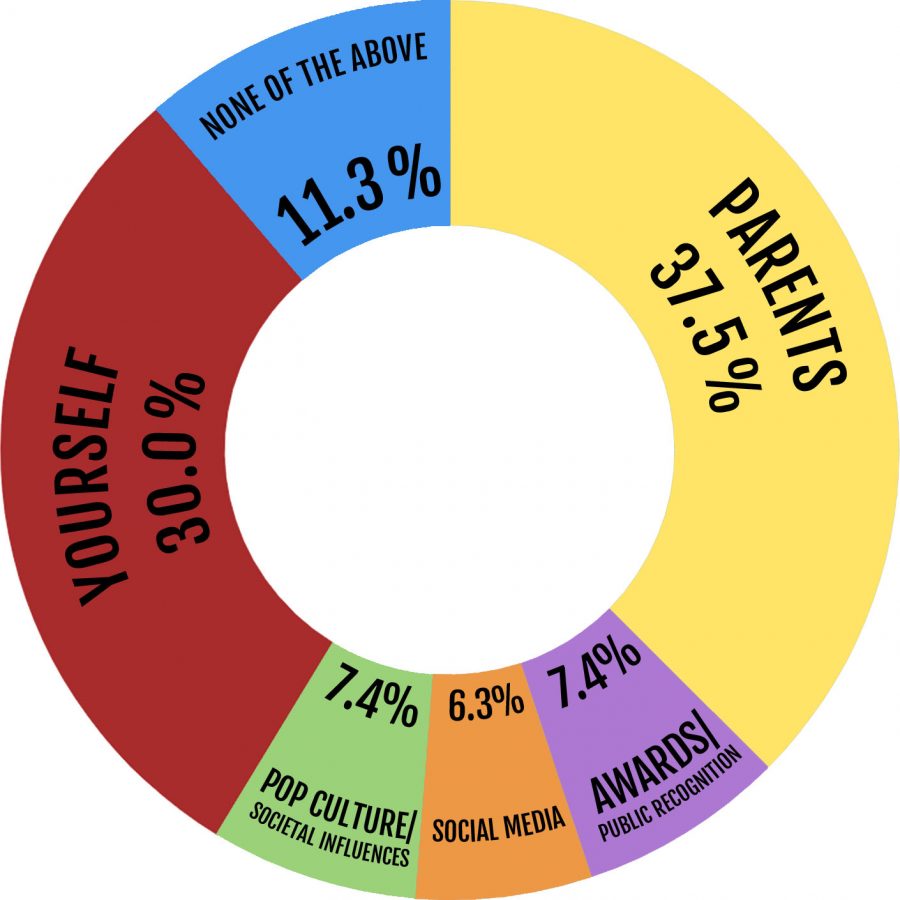If you’re familiar with basketball, you’ve probably heard the story of Michael Jordan—one of the greatest basketball players of all time—being cut from his high school basketball team.
We often hear stories about people like Jordan who become stronger because of their failures. We commend them for using their failure as motivation for their success, but we fail to apply these lessons to our own lives.
In the academic environment, failure is considered taboo. Students often approach failure with an unhealthy mindset—one bad quiz grade is often enough to prompt students to switch into an easier class.
But we don’t just see this view in academics. According to Guidance Counselor Chris Hempsted, this fear to fail surfaces in many different parts of our lives.
“This generation is under such pressure to be perfect and be good at everything,” Hempsted said. “You have to do sports, you have to do forensics, you have to do the arts, you have to get good grades, you have to get good test scores … this generation is really pressured to be perfect at everything, and there’s no way that’s realistic or possible.”
It’s important to ask ourselves what causes fear of failure. This differs from person to person, but one source of it is our very own parents.
Parents, no doubt, want the best for their children. They want to see them succeed and spare them the sadness and frustration often accompanied by failure—emotions that are necessary for growth.
“We see this behavior in ‘participation trophies,’ parents being upset with schools for giving out awards and parents calling schools when their child doesn’t make the cut for a sports team,” Fine Arts and Psychology Teacher Donna Walker said. “Throughout the last decade, professors are reporting that for the first time ever, parents are contacting them about their college-age children’s grades.”
However, a fear of failure can also be caused by the academic and social setting. Trinity fosters a collaborative environment, but even so, to receive academic awards and other accolades, we must compete amongst our peers. When we don’t receive an award that we worked hard for, it can cause us to feel as if we have failed, though it is often a fraction of a point that determines the winner.
To combat this, some high schools have gotten rid of the valedictorian and salutatorian titles, thinking that they promote unnecessary competition instead of collaboration.
Additionally, social media can exacerbate this sense of competition by both forcing us to compare ourselves to others and distorting our perception of them.
“Nobody posts that they just had a car accident, that they just failed a test or that they didn’t get into Harvard,” Hempsted said. “They post all the positives, so it gives everyone a very skewed vision of other people’s lives. From social media, you’d think everyone lives this perfect, happy life, when that’s not the case. You guys are constantly bombarded with all these perfect people, and it’s important to keep in mind that they fail too.”
Being burdened by a fear of failure can actually have worse effects than failure itself.
“[Fearing failure] can prevent kids from trying their hardest or from trying new things,” Walker said. “If you don’t try as hard as you could have or if you procrastinate, for example, you can always blame your failure on your low effort or procrastination, not some inherent lack of aptitude or
talent.”
We have to keep in mind that failure (in moderation, of course) can even be beneficial. By putting ourselves in situations where we might fail, we learn to deal with rejection and defeat and ultimately, emerge stronger. A quick Google search of “famous people who have failed” brings up countless examples of people like Michael Jordan whose failures actually helped them succeed.
“I think failure does have some benefits,” junior Alissa Vuillier said. “Overcoming failure itself is a challenge, but makes you all that much stronger when you do. I think if you don’t ever fail, then you’re not really getting out of your comfort zone enough or challenging yourself.”
The issue really becomes about how we can overcome this fear of failure. While it might be impossible to change society’s negative outlook on failure, we can certainly change how we look at it.
For one, we can keep a realistic mindset about social media and our lives in general.
“You have to just know in your head while you read someone’s posts [on social media] that they have flaws too,” Hempsted said. “Just know that people aren’t going to put the negative stuff on social media.”
Hempsted also stresses that talking to your parents about these issues is key.
“Open communication with your parents is always the best way to deal with anything,” Hempsted said. “I would rather see parents accessing [Canvas] once every few weeks and talking to their children about their grades instead of just looking at the numbers.”
With that, it is necessary to keep things in perspective. Missing one question on a two question quiz might be result in an F for that assignment, but it isn’t something to freak out about.
Finally, we can go out of our way to put ourselves in challenging situations. If you expose yourself to failure time and time again, it won’t seem like a big deal after a while. Don’t get me wrong; you shouldn’t intentionally fail an important test in order to overcome your fear of failure. But instead, challenge yourself and keep in mind that there might be difficulties along the way.
“The way I see it, even if you do try something and fail, you’ll have at least learned something,” Vuillier said. “You’ll still be left better off than if you hadn’t tried that thing in the first place.”















